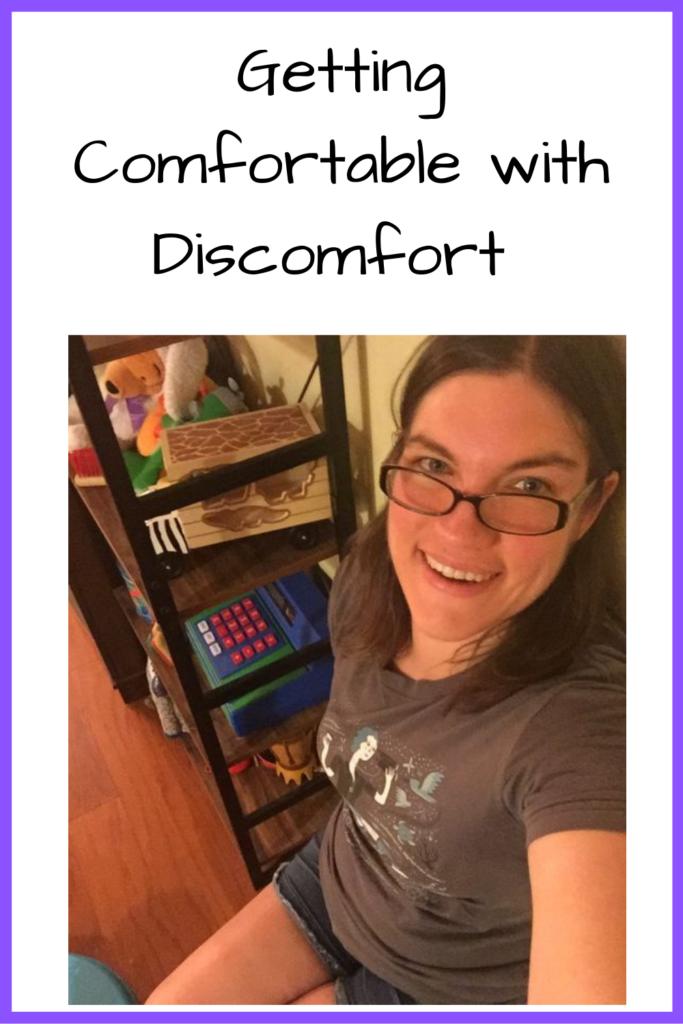
“Hold it! Hold it!” my prenatal yoga teacher encouraged the class as we all struggled to keep our backs to the wall and our knees bent. Those three minute wall sits felt like an hour. But they weren’t meant to be easy. They were meant to teach us how to okay with being uncomfortable.
20
Pregnant people are in the process of entering a world of discomfort, if they aren’t there already. Birth, of course, is some of the ultimate physical discomfort, even with an epidermal. Not to mention the recovery afterwards, with the mesh underwear and the sitz bottle and everything else.
But for most of us, parenting introduces a new kind of discomfort beyond the physical. The discomfort of 24 / 7 caretaking. The discomfort of loving someone so hard and yet knowing that you can’t totally protect them and you can’t control them. The discomfort of realizing how much you have to learn. And the discomfort of vast growth.
True growth is hard. Often painfully so. It involves a lot of discomfort. The vulnerability of exposing your heart, of recognizing how wrong you can be, of acknowledging that you need to change, of allowing someone to correct you. Especially if you’re used to that person having less power than you. For those of us who have a lot of privilege, learning to be uncomfortable may be particularly hard.
But that’s why it’s so important to practice, like we did in that prenatal yoga class. Learning how to sit in and tolerate that discomfort is the only way we’ll get better at it.
As parents, this practice and growth is essential, so we can constantly build our relationships with our children and model healthy emotional patterns. It can do everything from help us break abusive patterns to tell our children that we’re wrong. It can help us do the right thing when it may get us social approbation. This ability to embrace discomfort also gives us the strength and bravery to have the hard conversations with our kids early and often, from racism to sex. Just like practice helps us deal with discomfort in general, it helps with the specifics of those conversations too. They never get easy, but they do get easier.
It’s also essential to help our children learn to be uncomfortable – not by berating or scaring them, but by guiding them through uncomfortable but necessary situations. One of the simplest examples is apologizing. Many kids are quick to shoot off a simple “sorry!” like my younger son. But making a good, sincere apology without defensiveness and with a true offer to fix the situation and prevent it in the future is hard. So we’ve started practicing good apologies early in our family. When our kids apologize, a tossed-off “sorry” doesn’t cut it. I always say, “And…?” to prompt them to ask how to make amends, even when they give me a pained look. I hope that by practicing it now that they’ll be able to do it as adults, even in the most difficult situations.
Back in that yoga studio, I knew I was preparing for birth, to become a mom. I didn’t realize how much I was practicing the skills I needed for the rest of my children’s lives and my own.